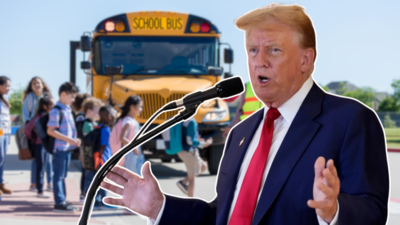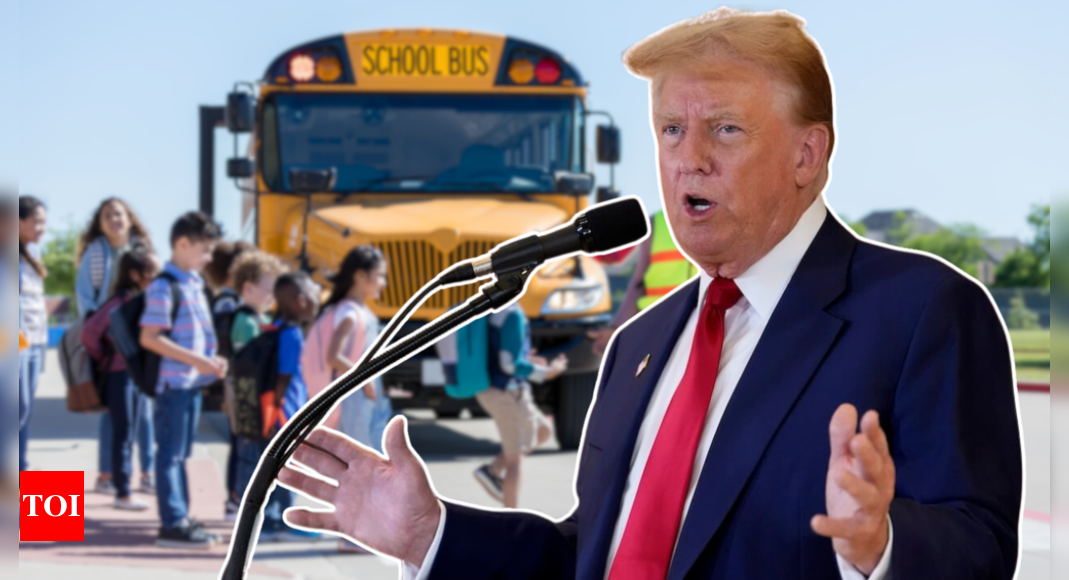[ad_1]

Donald Trump’s return to the White House has signalled a big shift in American politics, and a significant shift in education policy could be at the heart of this transformation. Trump defeated Democratic opponent Kamala Harris with a decisive win, sparking questions about how his administration might reshape key facets of the education system. From student loans to K-12 funding and international student policies, a new Trump term could lead to sweeping reforms that may upend much of the work done under President Joe Biden’s administration.
Rewriting the script on student loans and college oversight
One of the central concerns about Trump’s education agenda revolves around federal student loan relief. During his first term, Trump dismantled Obama-era regulations on college oversight, a trend that may continue as he seeks to unwind Biden’s reforms.
Biden had enacted billions of dollars in student debt forgiveness, restructured policies to protect students from predatory colleges, and championed new protections for LGBTQ+ students. Trump has vocally criticized these moves, denouncing student loan forgiveness as a ‘disaster’ and indicating plans to reverse it.
According to a USA Today report, colleges may face significant challenges as Trump’s agenda takes shape, with swift regulatory changes expected to follow. Lynn Pasquerella, president of the American Association of Colleges and Universities, suggests that this regulatory back-and-forth creates “an extraordinary amount of moral distress” for institutions as they adapt to differing federal standards from one administration to the next.
The future of the U.S. Department of Education: A question of survival?
Trump’s criticisms of the Department of Education have been long-standing, with a push among some Republican lawmakers to abolish the agency since its founding in 1979. Although he cannot unilaterally eliminate it, Congress would have to pass legislation to do so, Trump’s win has renewed discussions around the department’s future. With Republican control in the Senate and a pending outcome in the House, a Republican-majority Congress could strengthen his hand in slashing the department’s budget or dismantling certain functions.
Despite this uncertainty, the Department of Education plays a critical role in managing federal student loans and enforcing anti-discrimination measures in schools. The dismantling or restructuring of the department would likely face intense political resistance, given its role in overseeing services that impact millions of students.
Student visa policies: Hope or hurdle for international students?
Trump’s re-election has triggered mixed reactions from experts regarding the future of international education. Indian students in particular represent a significant portion of the foreign student body in the U.S., with media reports estimating that 400,000 Indian students pursued studies in the U.S. in 2023 alone.
Trump’s previous term saw restrictive immigration policies that led to uncertainty for Indian students, particularly in STEM fields. However, his new policy outline includes an automatic green card provision for foreign students graduating in STEM, indicating a potential pivot to attract talent from abroad.
Nevertheless, whether Trump’s policies will provide greater stability or pose further challenges for international students remains to be seen. The impact on visa policies, including options for post-graduation work, will be a crucial consideration for students contemplating studying in the U.S.
K-12 Education: A battleground of ideology and federal funding
Beyond higher education, Trump’s return may also usher in considerable changes to K-12 policy, especially in areas that intersect with social issues. His first term included significant cuts to public education funding and a push to redirect federal dollars toward school choice initiatives. This focus aligns with parent groups like Moms for Liberty, who have championed a conservative vision of public education and opposed policies they view as promoting certain social issues. Trump’s stance on protecting “parents’ rights” and keeping “men out of women’s sports” resonates with these advocates, who support his approach to reshaping the K-12 landscape.
According to Associated Press reports, Trump’s effectiveness in advancing these policies will hinge on the legislative landscape. If Republicans maintain control of Congress, he may have a greater ability to implement his agenda.
However, proposals to consolidate the Department of Education with the Department of Labor, and previous plans to cut education funding by up to 13%, were met with resistance, even from Republican lawmakers.
Will a Second Term Cement Trump’s Vision for U.S. Education?
Trump’s second term presents an ambitious yet uncertain future for education policy in America. His administration’s impact on higher education, K-12 policy, and international student mobility will depend not only on his proposed changes but also on the ability to navigate a divided Congress and the public response to significant shifts in federal priorities. For universities, schools, and students, this period may usher in both opportunity and upheaval as Trump’s administration seeks to reshape the role of government in education from top to bottom.
[ad_2]
Source link




